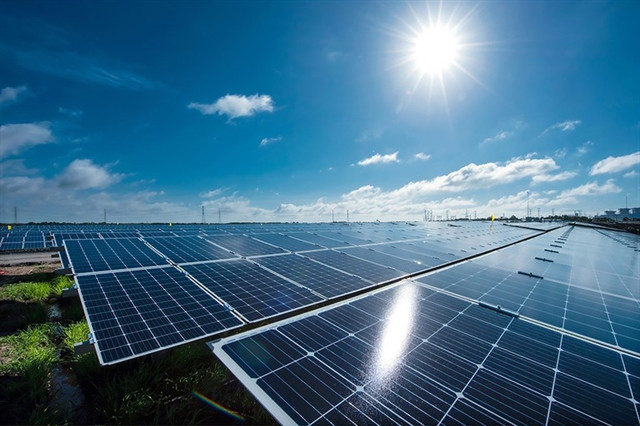Hanoi (VNS/VNA) — Renewable energy companies were becoming moreactive in the corporate bond market, according to brokerages.
Statistics from the Hanoi Stock Exchange (HNX), the national trade promotionoffice of Finland Finnpro and Techcombank Securities Co showed that amongthe 171 trillion VND (7.4 billion USD) of corporate bonds issued in the firsthalf of this year, renewable energy companies accounted for 4 percent.
The average interest rate of energy bonds was 10.3 percent per year, onlysecond after the real estate sector which stood at 10.6 percent peryear.
The successful issuance rate in that period reached 92 percent, with anaverage term of 7.2 years.
Trungnam Group has mobilised up to 4.5 trillion from bonds so far thisyear, with an interest rate of 10.5 percent per year. Hong Phong 2 EnergyJSC has also mobilised 1.6 trillion VND from 6-year bonds with aninterest rate of 10 percent per year. Ea Sup 5 JSC collected 1.14 trillion VNDwith an interest rate of 11.3 percent per year and terms of 18 monthsto 9 years.
In August, My Son 1 Solar Power Co Ltd successfully issued 300 billion VND ofthree-year bonds with an interest rate of 10 percent per year.
Clean energy projects such as solar power and wind power are beingpromoted by the Government, with attractive electricitypurchasing prices of 7.09 - 9.35 cents per kWh, tax exemptions for 4years, and a reduction of 50 percent of tax payable for the next 9 years.
With the advantages of stable operations, low operating and maintenance costs,and high economic efficiency, bonds issued by clean energy companies have lowerrisks than other issuers in the fields of real estate and construction, whileoffering interest rates that are attractive to investors.
Clean energy bonds have a relatively long maturity, averaging 7.2 years, andmost of them are issued privately, meaning they are sold to no more than 100investors in the first year under current regulations.
However, from the second year onwards, these bonds can be tradedby more than 100 investors, so there is no difference in buyingor selling clean energy bonds compared to other bonds like realestate, which usually have a maturity of about 2-3 years.
Buyers of corporate bonds are often banks. Previously, banks focusedon real estate bonds but clean energy is becoming increasinglymore attractive./.






























